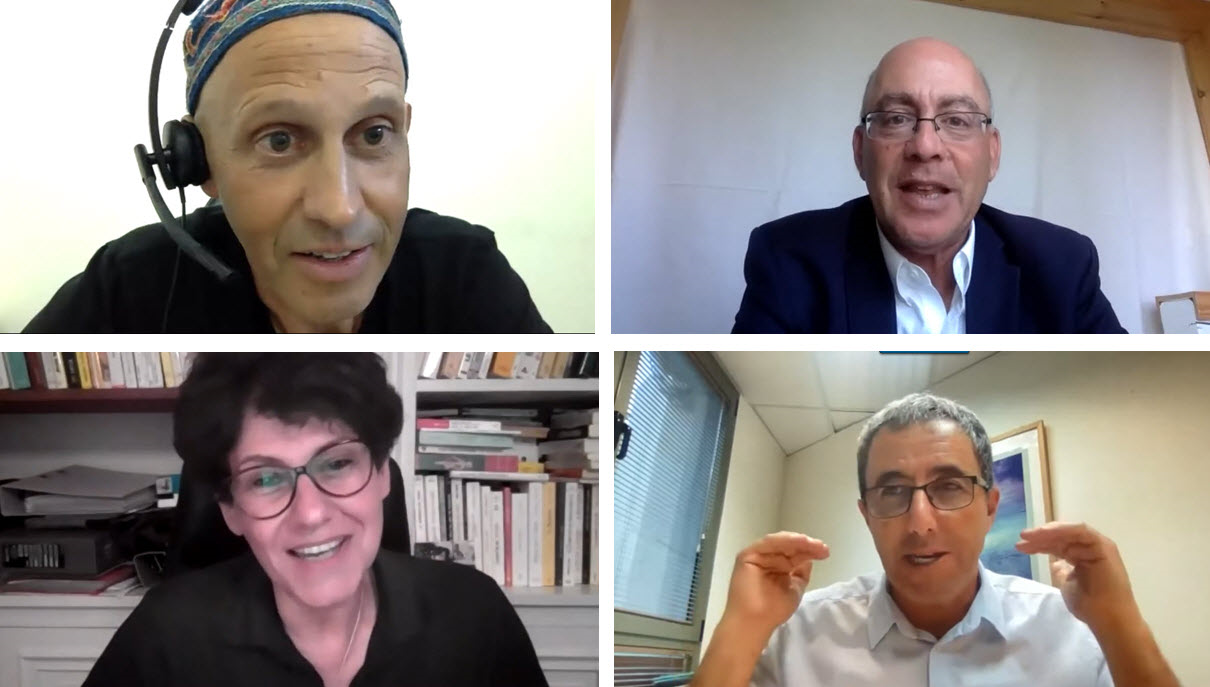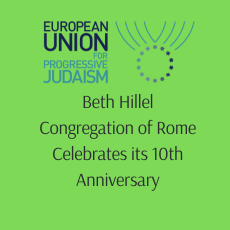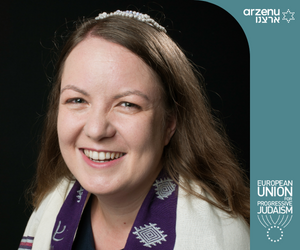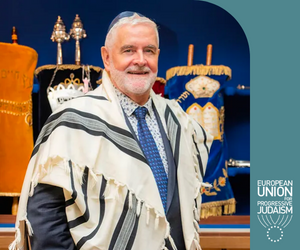Climate Change: How Should Jews Respond?
By Bill Echikson, EUPJ Brussels Director
From floods in Belgium, where I live, to a scorching heatwave in the United States, where I grew up, the threat of climate change seems everywhere. How should Jews respond?
That was the question we asked at our most recent European Union for Progressive Judaism webinar. By protecting our environment, panellists explained that we can promote peace in the Middle East as well as encourage interfaith dialogue in Europe.
“This is our common house,” asserted Rabbi Sergio Bergman, president of the World Union of Progressive Judaism (WUPJ) and former minister of Environment and Sustainable Development for Argentina. As minister, he expanded its natural parks and took his country into the Paris Climate Accords. At the WUPJ, he is integrating the fight against climate change into the organisation’s priorities. “From our Jewish tradition, from our Torah, we learn that we are part of nature,” he says.
The Torah tells us that the earth is given to man to use and protect (Genesis 1:26-28). In Jewish belief, the Creator loved all His creations: plants, animals, and humans. The coming year, 5782 in the Jewish calendar (Sept. 7, 2021–Sept. 26, 2022) will be the next Shmita (Sabbatical) year. “Six years you shall sow your field, and six years you shall prune your vineyard, and gather in the produce thereof. But in the seventh year shall be a sabbath of solemn rest for the land, a sabbath unto the LORD; you shall neither sow your field, nor prune your vineyard.” (Leviticus, Chap 25)
As our webinar demonstrated, the world’s bitterest of enemies can come together to preserve the environment. EcoPeace Middle East unites Israelis, Palestinians, and Jordanians. Founded in 1994, it has brought together mayors from the three groups to rehabilitate the Jordan River, which EcoPeace’s co-founder and Israeli director, Gidon Bromberg, lamented, “looks like a sewage canal, which smells and is a health hazard”.
How to share the region’s limited natural water resources has long been a divisive issue. Israel’s transformation into a desalination and wastewater recycling superpower opens up opportunities, according to Bromberg. He outlined a Green-Blue deal under which Israel could trade its surplus water for cheap natural gas and solar power generated in Jordan, which has plenty of sunny desert. “Environment doesn’t know borders,” said Bromberg, “If we are to respond to floods and extreme temperatures, then we are going to have to learn to cooperate.
“Rather than seeing climate change as a threat to security, we see climate as a multiplier of opportunities. We have to learn to co-operate closer together if we are going to survive as a region,” he said.

(Bottom L-R) Rabbi Daniela Touati, Keren Or Synagogue; Gidon Bromberg, EcoPeace
Bromberg showed us a photo of Israeli, Palestinian, and Jordanian mayors from the Jordan River valley holding hands and standing shirtless in swimsuits in a cleaned-up portion of the Jordan river. The mayors aren’t friends; however, “despite conflict, despite animosity, they have come to understand that they are all losers.” But by working together, they can all be winners!
In Europe, Jewish communities realise that they must play their part to fight climate change. Lyon’s Progressive Keren Or synagogue long neglected its garden. Weeds sprouted. Even when it was sunny, few members ventured outside. When Rabbi Daniela Touati finished her studies and assumed leadership of the synagogue, she formed a group to create an eco-synagogue – and invited local Muslim and Christian groups to participate.
The Lyon synagogue partnered with a local NGO called “The Green Hands” and began gardening. Fruit, vegetables, and herbs have been planted. The plan is to have two growing seasons – spring and fall. Each month, a dozen participants from the synagogue, church, and mosque meet to work on the garden. Although most of the products will be donated to charities, the synagogue plans to keep some for their interfaith picnics.
Keren Or aims to become a fully-fledged “eco-synagogue”. In addition to the garden, it has held conferences on subjects like “digital pollution”, among others, to inform the community about the challenges of tackling climate change. Rabbi Touati plans to use the synagogue for much more than food production. In this era of lockdown restrictions, which limit synagogue participation inside, she is using the garden to lead services for the cheder, hold kiddushim, and other synagogue events.
“All religions can share this green faith,” she said. Her community’s garden is living proof.
This article was first published in The Times of Israel.








